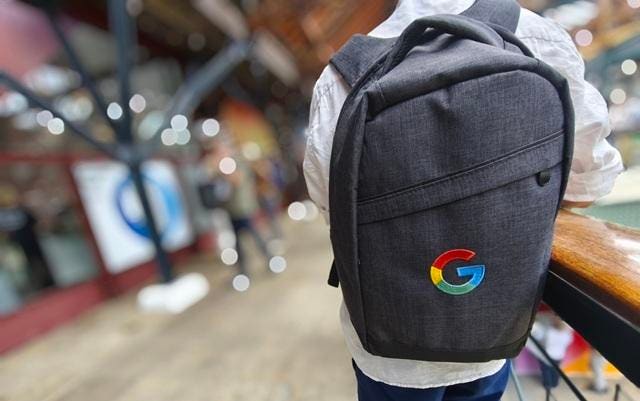Welcome back to The Prompt.
In a major win for AI companies, a federal judge in San Francisco ruled on Monday that Anthropic’s use of millions of copyrighted books —without writers’ permission— to train its AI models was legal under the “fair use” clause of the U.S. Copyright Act. The judge said Anthropic’s use of the books was “exceedingly transformative” and did not violate copyright.
Anthropic obtained these texts to set up a “central research library” and train its models: “The firm purchased copyrighted books… tore off the bindings, scanned every page and stored them in digitized, searchable files,” the ruling stated.
This wasn’t a total loss for the plaintiffs. According to the suit, the company also pirated books, which it claimed it did not use for training. The court ruled that Anthropic’s storage of them violated the authors’ copyright and has asked for a trial to evaluate how pirated materials were used.
The landmark ruling is especially consequential because almost every major AI model developer–including OpenAI and Perplexity–has been hit with copyright lawsuits from an ensemble of artists, news companies, musicians and others.
Let’s get into the headlines.
POLITICS
Amid rising tensions between Iran and Israel, AI-generated pro-Iran propaganda videos are circulating on social media platforms like TikTok, Instagram and Youtube, where they are viewed tens of millions of times, Forbes reported. The videos aren’t labelled as AI-generated and could be mistaken as real. Experts warn dissemination of fake imagery could fuel misinformation and divisions.
BIG PLAYS
Mark Zuckerberg appears to be on a hiring spree. The billionaire CEO of Meta has made $100 million offers to top researchers at OpenAI, Sam Altman said during a recent podcast. He has also personally reached out and held talks with the founders of buzzy AI companies like Safe Superintelligence, Perplexity, Runway and, surprisingly— even investor duo Nat Friedman and Daniel Gross, by buying out their fund, NFDG. The hiring push comes after the social media giant acquired a 49% stake in data labelling giant Scale AI and hired its young founder Alexandr Wang to spearhead a new AI lab. Evident in its most recent model launches, Meta has struggled to keep pace in the heady AI race.
ETHICS + LAW
Over the weekend, OpenAI removed all public references to its splashy $6.5 billion acquisition of hardware startup io after facing trademark infringement allegations by Google-backed audio device startup Iyo. The company claimed that CEO Sam Altman knew about its existence and had even demoed its product. While details about the product are still under wraps, io cofounder Tang Tan has said in a court declaration that the product is not an in-ear device or a wearable, according to TechCrunch.
AI DEALS OF THE WEEK
OpenRouter, a platform that allows developers to access and run more than 400 large language models has raised $40 million in a round led by Andreessen Horowitz and Menlo Ventures. The startup, which helps route prompts to different models based on its requirement, is now valued at $500 million, according to a person familiar with the startup.
Abridge, best known for its AI note taking software for doctors, has raised $300 million at a $5.3 billion valuation.
Legal AI startup Harvey has raised $300 million at a $5 billion valuation.
DEEP DIVE
For many businesses, Google used to be core to their strategy to get in front of potential customers. They’d use search engine optimization tactics to make sure they’re one of the treasured few links that show up when you search for something.
Those days are numbered, thanks to AI. Search traffic for businesses like travel site Kayak and edtech company Chegg is dropping, in part because 60% of searches on sites like Google aren’t leading people to click any links, per one study — they just read the AI summary at the top. An executive at a cybersecurity company told Forbes search traffic to its website has gone down 10% this year. “The industry is really turned on its head because traditional ways of eventually SEO just don’t work anymore,” he said.
Now, instead of ginning up content to rank higher in traditional search engines, businesses are increasingly trying to grok how their brands show up in answers generated by AI search engines like Google’s AI Overviews, Perplexity and ChatGPT, and create new content designed to be picked up by bots — and a new crop of startups has sprung up to help them.
“This is a true Game of Thrones power shift that is upon us here,” said James Cadwallader, the cofounder and CEO of Profound, which helps more than 100 customers like U.S. Bank, Docusign and Indeed understand how their brands appear in AI responses. “We’re entering this inflection point where humans no longer need to visit websites on the internet….These systems are hijacking that relationship with the end user entirely.”
It’s a “hair on fire” problem for companies, said Kleiner Perkins partner Ilya Fushman who led a $20 million funding round into the startup, which is less than a year old. Nvidia and Khosla also participated in the round, which valued Profound at over $100 million.
Read the full story on Forbes.
WEEKLY DEMO
It’s become clear that office workers vastly prefer using ChatGPT over Microsoft’s Copilot. That’s becoming a problem for the office software giant as it struggles to sell its AI to businesses, Bloomberg reported. For instance, drugmaker Amgen, which earlier said it plans to buy Microsoft’s Copilot for 20,000 employees, is now using ChatGPT for tasks like research and summarizing documents. It could be the latest sticking point between the two companies, which once enjoyed friendly partnership but have since seen relations get strained.
MODEL BEHAVIOR
A student at MIT used AI-generated polymers to restore an old and damaged painting, reducing a months-long process down to hours, according to Ars Technica. The method involved creating an artificial “mask” containing thousands of color-matched patches that are overlaid onto the original version. AI could be immensely helpful to “digitally restore” a large backlog of old and dusty paintings.








